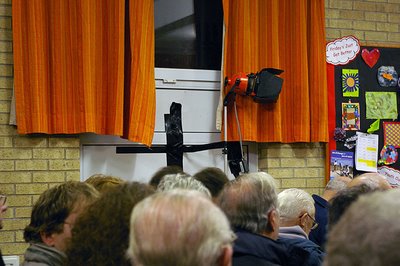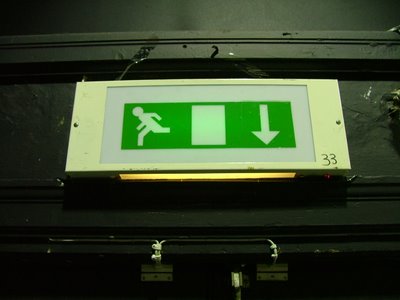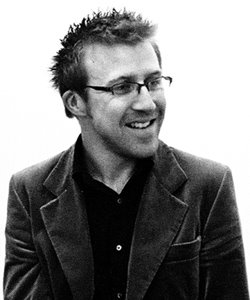
This is the bibliography for Acts of Commmunion: The Performance, The Installation, and The Writing. Where citations are used in the rest of the blog and reflexive journals I list the source and date.
APOLLINAIRE, G., 1972, Zone with an English translation by Samuel Beckett. (s.n.): (s.i)
ARTAUD, A., 1938. The Theater and its Double. (s.n.).(s.i)
BARTHES, R., 1977, Image, Music, Text. London: Fontana Press
BARTHES, R., 1957, Mythologies. New York, Hill and Wang
BAUDRILLARD, J., 2004, Fragments, London: Routledge
BECKETT, S., 1965, Waiting for Godot: a tragicomedy in two acts. (s.n.): (s.i)
BECKETT, S., 1971, Breath and other shorts. (s.n.): (s.i)
BERGER, J., 1965, Success and Failure of Picasso. Middlesex: Penguin
BLAZEVIC, M. and GOULISH, M. ed., 2005, Frakcija No. 35 Spring 2005. Croatia: Bauer
BOAL, A., 2000, Theater of the Oppressed. New Edition. London: Pluto Press
BOCK, V. and VINCENZI, S., 2004, Invisible Dances… From Afar: A show that will never be shown, London: Artsadmin
BROOK, P., 1968, The Empty Space. Middlesex: Penguin
CANETTI, E, 1962, Masse und Macht. London : Gollancz
COPPARD, H and MEADE, C., 1988, The Wedding: exhibition catalogue. (s.n.): (s.i)
CURTIS, R., 1995, Four Weddings and a Funeral. (s.n.): BCA
DARLEY, A., 2000, Visual Digital Culture: Surface Play and Spectacel in New Media Genres, 2000. London: Routledge
DE OLIVEIRA, N., OXLEY and N., PETRY, M. ed., 1996, Installation Art, London: Thames and Hudson
DE OLIVEIRA, N., OXLEY and N., PETRY, M. ed. 2003, installation art in the new millennium: the empire of the senses. London: Thames and Hudson
DEBORD, G., 2002, The Society of the Spectacle, New York: Zone
DERRIDA, J., 2005, Writing and Difference, New York: Routledge
ESSLIN, M., 2000, Antonin Artaud. (s.n.): (s.i)
ESSLIN, M., 1984, Theatre of the Absurd. London: Penguin
ETCHELLS, T., 1999, Certain Fragments. London: Routledge.
FOUCAULT, M., 2006. The Order of Things, New York: Routledge
GABLIK, S., 1995, Conversations before the End of Time. London: Thames and Hudson
GOAT ISLAND, 2000, School Book 2, (s.n.): (s.i)
GOLDBERG, R.,1998, Performance, London: Thames and Hudson
GRAY, C. and MALLINS, J., 2004, Visualizing research :a guide to the research process in art and design. (s.n.): (s.i)
GROSSVOGEL, D, I.,1975, Four Playwrights and a Postscript. 2nd Ed. (s.n.): (s.i)
HARRISON, C. and WOOD, P. ed. 1992, Art in Theory 1900 – 1990. Oxford: Blackwell
HEATHFIELD, A. ed., 2000, Small Acts: Performance, the Millennium and the Marking of Time, London: Black Dog Publishing
HEATHFIELD, A. ed., 2004, Live: Art and Performance, London: Tate Publishing
JONES, C. A., 1993, A History of Nottingham School of Design. Nottingham: NTU
KAYE. N., 1994, Post-modernism and Performance. London: MacMillan Press
LACAN, J., 1988, Freud's papers on technique 1953-1954. Cambridge: Cambridge University Press
LACAN, J., 1988, The ego in Freud's theory and in the technique of psychoanalysis 1954-1955. Cambridge: Cambridge University Press
LAING, R. D., 1999, Self and others. 2nd Ed. (s.n.): (s.i)
LAING, R. D.,1999, The divided self :an existential study in sanity and madness. 2nd Ed. (s.n.): (s.i)
LECOQ, J., 2002, The Moving Body, London: Methuen
NEWLING, J., 2004, Stamping Uncertainty. (s.n): SWPA
ODDEY, A.,1994, Devising Theatre, London: Routledge
PEREC, G., 1999 2nd ed., Species of Spaces and Other Pieces, London: Penguin
SAVRAN, D.,1986, Breaking the Rules, Michigan: UMI
SCHECHNER, R., 2002, Performance Studies, London: Routledge
SCHECHNER, R., 2005, Performance Theory, New York: Routledge
SMITH, J., 2005, Jacques Derrida: Live Theory, New York: Continuum
SONTAG, S., 1977, Illness as Metaphor, London: Penguin
WILLET, J. and MANHEIM, R., ed., 1970, Bertolt Brecht collected plays Vol 1. (s.n.): (s.i)


































